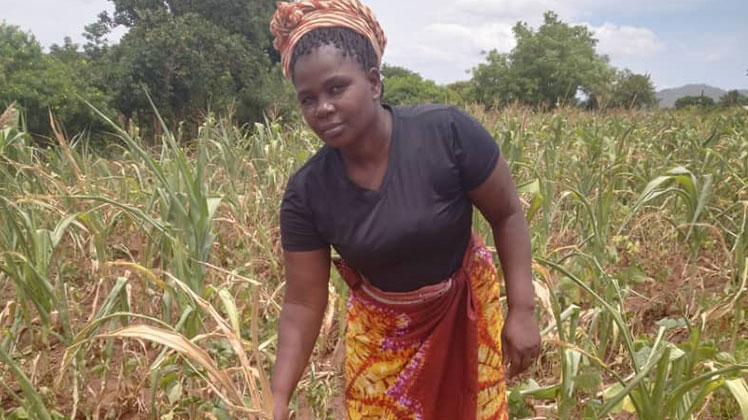Community for reduced disaster risks

Rute Godfrey knows farmers are praying for good rains so that they may realise an abundant harvest in the 2013/14 agricultural year.
Memories of the floods that washed away her family’s crops last year are still fresh in her mind, and she prays God will make things better this year.
“It’s not that I don’t know the importance of rainfall. It is the source of our very livelihoods. But my fear is that by asking for rains, I could be inviting my family’s destruction; hence, I’m not keen on rains,” she declares.
Godfrey, who comes from Ntchenyera Village in Traditional Authority (T/A) Mbenje in Nsanje, laments that every year, rains come with natural disasters that displace their families.
The natural disasters have also damaged valuable property such as houses, livestock and crops, reducing owners to beggars.
“On top of that, our children are forced to stay away from school where there are floods as classrooms become our homes,” says Godfrey.
Malawi is one of the countries that have been experiencing natural disasters, which have negatively impacted national development and led to loss of lives.
Catholic Development Commission in Malawi (Cadecom) disaster preparedness and response field officer for Nsanje, Felena Kubwalo, says the magnitude, frequency and impact of disasters have been increasing over the years due to climate change, population growth and environmental degradation.
Kubwalo notes that the disasters have caused economic damage whose resilience or ability to recover will depend on the amount of educational, technical as well as financial empowerment government and the civil society can invest in locals.
She proposes that the best approach to empower disaster-prone communities is to let them develop their own integrated early warning systems (EWS), which they can easily follow in reducing danger.
Kubwalo discloses Cadecom has been implementing a disaster preparedness and response project with funding from Oxfam Malawi through which they learned that communities have their own traditional and ancestral methodologies of detecting hazards.
“And these methodologies have proven more effective in strengthening disaster risk management (DRM) coordination mechanisms than those developed elsewhere without their involvement,” she explains.
Adds the field officer: “The methodologies have also helped in enhancing and promoting predictable transfers of the most vulnerable to safer places before disaster hits.”
Speaking when he presented a cheque towards Nsanje disaster contingency plans last Wednesday, Chikhwawa Diocese Cadecom board chairperson Fabian Anthuachiwo expressed concern over the lack of preparedness among stakeholders, saying this frustrates all efforts to manage risks.
Anthuachiwo explained that there was need for government and its cooperating partners to prepare beforehand in order to avert damage and loss of lives.
“Our donation aims at supporting the review of Nsanje disaster contingency plans as we draw closer to the rainy season so that we don’t have a repeat of past experiences,” said Anthuachiwo.
Cadecom has already begun creating awareness on disaster preparedness and response in Nsanje.
He said with a £200 000 [about K123 million] funding from Oxfam Malawi, Chikhwawa Diocese Cadecom is already on the ground implementing a disaster preparedness and response project in T/As Tengani and Mlolo.





